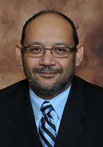

Carter G. Woodson’s Group preserves Black History
Daryl Scott: Black People Care About History
By Maya Rhodan
WASHINGTON, D.C. (NNPA) — For 97 years, the Association for the Study for African American Life and History has been commemorating the accomplishments of African Americans through Black History celebrations.
In 1915, Carter G. Woodson founded the Association for the Study of Negro Life and History and sought to expand the understanding of Black history beyond slavery.
What began as a weeklong celebration that coincided with the birthdays of Frederick Dou-glass and Abraham Lincoln has developed into a highly anticipated month of events, television programs, headlines, and lectures that connect the trials and triumphs of African Americans to the people of the community.
“From the beginning, Carter G. Woodson was of the opinion that a lot of Black people did not have a great enough appreciation of who they were because they didn’t know what they had accomplished,” says Daryl Scott, president of ASALH. “But today, Black people care more about history than any other people in America. The fact of the matter is Americans don’t care about history at all.”
It’s true. In general, Americans don’t know the basics of the nation’s history.
In a 2009 national survey by the American Revolution Center, more Americans could identify Michael Jackson as the person who wrote and sang the song “Beat It” than could identify the Bill of Rights as a part of the U.S. Constitution.
After the adoption of No Child Left Behind in 2001, which some says ushered in a period of “teaching to the test,” if it didn’t appear on a standardized test, it didn’t get taught in many schools.
Consequently, some fear students graduating from high school today may know how to pass a test but lack the knowledge that makes them well-rounded citizens.
Among children, according to the 2010 Nation’s Report Card presented by the National Center for Education Statistics, only 20 percent of fourth graders, 17 percent of eighth graders and 12 percent of 12th graders perform at or above “proficient” levels, meaning they obtain more knowledge than basic levels, in U.S. History.
In a land where history is not deemed as important, how does an organization based on the idea that history, specifically Black history, is of the utmost importance stay relevant?
Scott says it does because it must.
“[African Americans] are the only ones who really tell the story of American history on a consistent basis,” explains Scott. “We promote American history in a serious way.”
He adds, “One of the downsides of the age in which we live is that new media favors the talking head, the person, the celebrity who can send out a tweet. There’s a way in which, no matter how much tech we have, until people meet with people the problems we have will not be addressed. We’re not going to tweet our issues away, it’s only going to change with human-to-human contact.”
The mission of ASALH is to promote research, preserve and disseminate information about Black culture to the world. The organization publishes three journals on African American life and is housed at Howard University.
Scott, who is also a history professor at Howard, remains unapologetic about the work he does with ASALH.
“You can’t celebrate Black History without American history and vice versa,” says Scott. “Unless you think that our freedom came out of a box than not through struggle, then you know that it was through an experience. You can’t understand the state of America without understanding the struggles between Blacks and Whites.”
Every year since 1926, the year of the first Black History celebration, ASALH has also set the themes for the month. This year’s theme is “At the Crossroads of Freedom and Equality: The Emancipation Proclamation and the March on Washington.”
This year marks the 150th anniversary of Lincoln’s signing of the Emancipation Proclamation and the 50th anniversary of the historic 1963 March on Washington.
“These events are like parables because the lessons we learn from them are simple, but very potent and powerful,” says Scott. “Freedom did not come to us with the stroke of a pen. We had to strike out and search for our freedom.”
The lessons from these events and the act of “striking out and demanding freedom” have played a key role in events as recent as the re-election of Barack Obama.
“We’ve witnessed ourselves on the verge of disenfranchisement,” Scott says. “It stunk of the need of people of African descent to stand up for rights to make sure they always have those rights.”
As Black History Month begins, so does the “busy season” for ASALH which includes countless events and culminates with a luncheon in Washington, D.C. However the goals of the organization will remain the same as they approach their centennial in 2015.
“My goal is to lay the foundation so association the is able to sustain itself for another 100 years,” says Scott. “That means engage the community in a better way to make history increasingly relevant.”


Be the first to comment